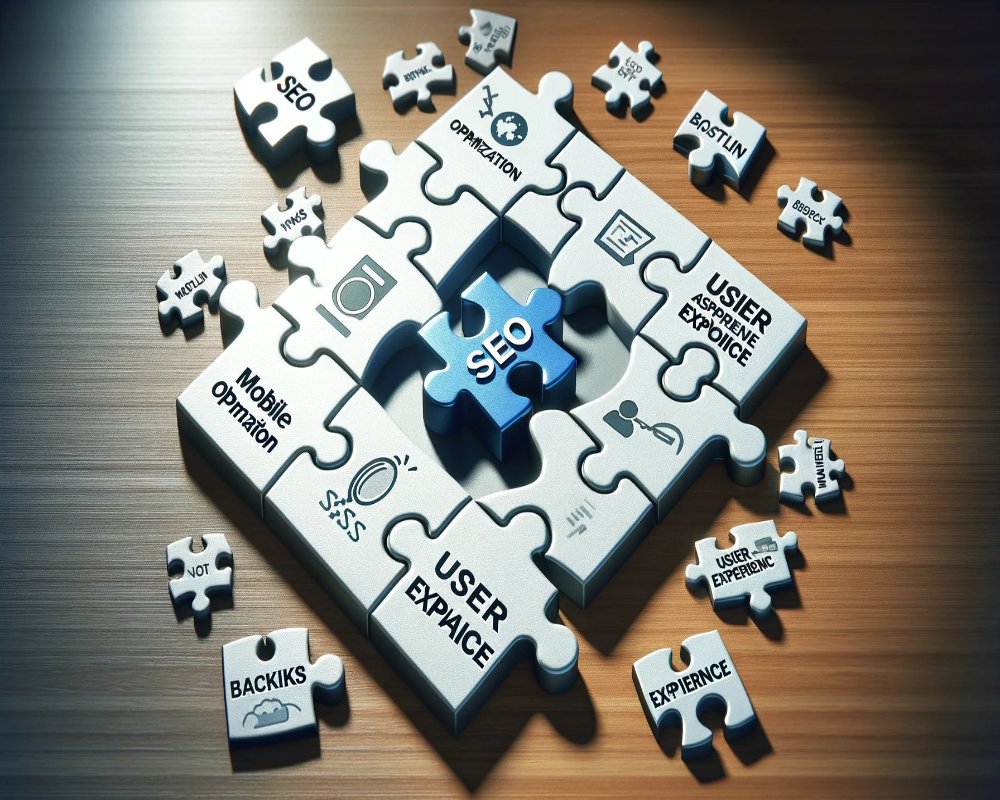SEO Rankings Drop Guide 2024: 10 Steps to Fix Common Issues
Finding the Answer Why do your SEO Rankings Suddenly and How Can You Recover?
2024 can be challenging for you if your ranking drops quickly because A sudden drop in SEO rankings can feel like a high-stakes puzzle. Why do these drops occur and what can you do about it? Every business invested in online presence knows the crucial role SEO plays in visibility and credibility. But what happens when your once-thriving website starts sliding down the search results?
Understanding the Importance of SEO Rankings
SEO, or Search Engine Optimization, is the art and science of aligning your website with search engine algorithms to boost organic visibility. Unlike paid advertising, SEO provides sustainable, long-term results and establishes trust with your audience. and if you are using programmatic SEO wrongly then it can also be the reason for a ranking drop.
Here’s why every SEO-focused business needs to prioritize their rankings:
- Credibility and Trust: High search rankings signal authority and reliability to potential customers.
- Cost-Effective Marketing: Compared to paid advertising, SEO is a cost-effective strategy for long-term growth.
- Higher Traffic and Engagement: Better rankings mean more visibility, leading to increased traffic and engagement.
- Competitive Edge: Ranking higher than competitors positions your business as a market leader.
SEO Rankings vs. Paid Advertising: A Comparative Overview
| Aspect | SEO Rankings | Paid Advertising |
|---|---|---|
| Cost | Cost-effective in the long term | Higher immediate cost |
| Duration of Benefits | Long-term visibility | Short-term, as long as you pay |
| Credibility | Higher trust from organic listing | Less trust than organic results |
| Target Audience Reach | Builds over time with content strategy | Instant reach, depends on budget |
| ROI | High over time | Immediate but can be costly |
| User Experience | Generally better, no ad interruptions | Can be disruptive, ad-block sensitive |

10 Common SEO Ranking Drop Mistakes and How to Fix Them in 2024
1. Neglecting Mobile Optimization
In an era where mobile browsing often surpasses desktop, neglecting mobile optimization can be a significant setback for your SEO rankings. Mobile optimization ensures your site is accessible and user-friendly on mobile devices, a factor heavily weighed by search engines.
- Importance of Mobile-Friendly Design: Mobile-friendliness is a ranking factor for search engines like Google. A site not optimized for mobile can suffer from lower rankings and decreased user engagement.
- Impact on User Experience and Search Rankings: Mobile users expect quick, easy-to-navigate websites. Poor mobile experience leads to high bounce rates and lower time on site, negatively impacting SEO.
- Testing and Improving Mobile Optimization: Use tools like Google’s Mobile-Friendly Test to evaluate your website. Ensure responsive design, optimize images, and streamline navigation for a better mobile experience.
2. Ignoring Local SEO
Local SEO is crucial for businesses targeting customers in specific geographic areas. It involves optimizing your site to appear in local search results, which can significantly increase visibility to a relevant audience.
- Significance of Local Search for Small Businesses: Local SEO helps connect your business with local customers. It’s essential for brick-and-mortar businesses or services specific to a region.
- Enhancing Local SEO Strategies: Optimize for local keywords, claim your Google My Business listing, and ensure your NAP (Name, Address, Phone number) information is consistent across the web.
- Utilizing Local Keywords and Google My Business: Incorporate local keywords into your site’s content. Fully utilize Google My Business by regularly updating your listing and encouraging customer reviews.
3. Overlooking Website Speed
Website speed is a critical factor in user experience and SEO. Slow-loading sites frustrate users and are often penalized in search engine rankings.
- Impact of Site Speed on User Experience and SEO: Site speed influences bounce rates, user satisfaction, and conversion rates. Search engines prioritize fast-loading sites in their rankings.
- Analyzing and Improving Website Speed: Use tools like Google PageSpeed Insights to assess your website’s speed. Optimize images, leverage browser caching, and reduce server response time to improve load times.
- Boosting Site Performance: Choose a reliable hosting provider, minimize HTTP requests, and use a content delivery network (CDN) to enhance your website’s speed.
you can check your website speed here and then optimize with the given suggestions.
4. Inconsistent Content Quality
High-quality, consistent content is a cornerstone of effective SEO. Inconsistent or low-quality content can harm your site’s credibility and ranking.
- Importance of High-Quality, Relevant Content: Quality content engages users and encourages them to spend more time on your site, signalling to search engines that your site is valuable.
- Maintaining Consistency in Content: Develop a content strategy that aligns with your audience’s interests and search intent. Regularly update and refresh content to keep it relevant and engaging.
- Role of Content in Engaging and Retaining Audiences: Well-researched, informative content establishes your authority and builds trust with your audience. Use various content types (blog posts, videos, infographics) to cater to different preferences.
5. Poor Keyword Strategy
Keywords are the foundation of SEO, but a poor keyword strategy can lead to missed opportunities and ineffective targeting.
- Identifying and Targeting the Right Keywords: Conduct thorough keyword research to understand what your audience is searching for. Focus on long-tail keywords for more specific, less competitive queries.
- Avoiding Keyword Stuffing: Overusing keywords can lead to penalties from search engines. Ensure your keywords fit naturally into your content.
- Effective Keyword Research Tools and Techniques: Utilize tools like Google Keyword Planner, SEMrush, or Ahrefs for comprehensive keyword research. Analyze your competitors’ keyword strategies to identify gaps and opportunities.
6. Ignoring Meta Descriptions and Title Tags
Meta descriptions and title tags are critical components of SEO that significantly influence click-through rates from search engine results pages (SERPs). A compelling title tag grabs attention, while a well-crafted meta description provides a concise summary of the web page’s content, enticing users to click through. Despite their importance, many websites overlook their potential.
- Impact on Click-Through Rates: Title tags and meta descriptions act as a mini-advertisement for your content. A lacklustre title or vague description can lead to missed opportunities, even if your page ranks well.
- Crafting Effective Meta Tags: Include relevant keywords in your title and description, but ensure they read naturally. Keep titles under 60 characters and descriptions around 155 characters to avoid truncation in SERPs.
- Common Mistakes: Repeated or generic titles and descriptions across multiple pages can harm your SEO. Each page should have unique, descriptive tags that accurately reflect the content.
7. Failing to Utilize Internal Linking
Internal linking is a powerful tool for SEO, helping search engines understand the structure and hierarchy of your website. It also enhances user navigation, encouraging visitors to explore more of your content. Despite these benefits, many sites underutilize internal linking or do it incorrectly.
- Importance for SEO and Navigation: Internal links guide users and search engines to other relevant pages on your site, distributing page authority and improving the visibility of less prominent pages.
- Effective Internal Linking Strategies: Use descriptive anchor text for links and link to relevant, high-quality content. Avoid excessive linking on a single page, and ensure links are contextually appropriate.
- Balance in Internal Linking: Overdoing internal links can be as harmful as neglecting them. Aim for a natural flow in your content where links add value and enhance the user experience.
8. Neglecting Backlink Quality
Backlinks are links from other websites to your site and are a crucial factor in SEO. They act as votes of confidence, indicating to search engines that other sites find your content valuable. However, not all backlinks are created equal, and focusing on quantity over quality can be detrimental.
- Impact of Quality Backlinks: High-quality backlinks, especially from reputable and relevant sites, can significantly boost your SEO ranking. In contrast, links from low-quality or irrelevant sites can harm your standing.
- Acquiring High-Quality Backlinks: Create valuable, shareable content that naturally attracts backlinks. Engage in legitimate link-building practices like guest blogging on reputable sites or collaborating with industry influencers.
- Avoiding Harmful Practices: Steer clear of buying links or participating in link farms. These practices can lead to penalties from search engines.
9. Not Tracking Analytics and Performance
Analytics play a crucial role in understanding the effectiveness of your SEO strategy. They provide insights into how users interact with your site, which keywords are driving traffic, and where improvements are needed. Neglecting this data can leave you blind to both your successes and areas needing improvement.
- Necessity of Analytics: Analytics tools help you track key performance indicators (KPIs) like organic traffic, bounce rate, and conversion rates, giving you a clear picture of your SEO performance.
- Key Metrics to Monitor: Regularly check metrics such as page views, user engagement, keyword rankings, and backlink quality. This data informs decisions on content strategy, site structure, and more.
- Tools for Effective Monitoring: Utilize tools like Google Analytics and Google Search Console. These provide comprehensive data and insights into your website’s performance in search results.
10. Disregarding User Experience (UX)
User experience (UX) is increasingly important in SEO. A site that is easy to navigate, loads quickly, and provides valuable content will rank higher in search engines. Conversely, a poor UX can lead to high bounce rates and lower rankings.
- Connection Between UX and SEO: Search engines like Google use UX signals (such as page load time and mobile-friendliness) as ranking factors. A positive UX keeps users on your site longer, signaling to search engines that your site is valuable.
- Elements of Good UX: Ensure your site is mobile-friendly, has a logical structure, and loads quickly. Content should be easily readable and visually appealing.
- Evaluating and Improving UX: Regularly test your website from a user’s perspective. Use tools to analyze load times, and gather user feedback to continuously improve the UX.
Additional Reason for SEO Ranking Drop: Overreliance on AI-Generated Content
While AI-generated content can be a valuable tool for content creation as you are in 2024 over-dependence on it without proper human oversight or customization can negatively impact SEO rankings. Search engines like Google prioritize unique, valuable, and engaging content that provides a positive user experience. AI content, if not carefully managed, may lack the nuances, depth, and personalization that human writers bring, leading to content that may not resonate as well with users or meet the search engines’ quality criteria.
- Lack of Originality and Engagement: AI-generated content can sometimes be formulaic and lack the original thought or personal touch that human-created content offers. This can lead to content that fails to engage readers deeply or provide unique insights.
- Potential for Quality Issues: AI tools might inadvertently create content that is repetitive, factually incorrect, or misses the subtleties of language and tone appropriate for your audience. Such issues can lead to a poor user experience and, consequently, lower rankings.
- Search Engine Penalties: Search engines are increasingly sophisticated at identifying AI-generated content. Websites that heavily rely on such content without significant human editing or contribution risk penalties or lower rankings, as this content is often viewed as lower quality or less valuable to users.
Addressing the Issue
To mitigate the risk of ranking drops due to overreliance on AI-generated content:
- Human Review and Customization: Use AI as a tool for generating ideas or initial drafts but ensure that final content is reviewed, customized, and enriched by human experts. This adds the necessary depth, perspective, and nuance that AI alone may not achieve.
- Focus on Quality and Value: Prioritize content quality and value to the reader. AI can support content creation, but the focus should always be on delivering content that is informative, engaging, and valuable from a human perspective.
- Balancing AI and Human Content Creation: Strive for a balance where AI aids in content creation but doesn’t fully replace the human element. The goal is to use AI to enhance efficiency and creativity, not to completely automate the content creation process.
Recover Your Site if Ranking dropped With the Help of E-E-A-T
E-E-A-T, which stands for Experience, Expertise, Authoritativeness, and Trustworthiness, is a concept that Google uses to assess the quality of web content. It’s a crucial factor in determining how well a page ranks in search results. If your site’s rankings have dropped, focusing on improving E-E-A-T can be a vital strategy for recovery. Here’s how each component can help:
1. Experience
- User Experience: Enhance the user experience on your site. Ensure your site is easy to navigate, loads quickly, and is mobile-friendly. A positive user experience can reduce bounce rates and increase time spent on the site, signals that Google interprets as indicators of a quality resource.
- Personal Experience: Demonstrate the personal experience of content creators where relevant. For instance, firsthand experience in topics like health, finance, or legal advice adds value and credibility to your content.
2. Expertise
- Showcasing Qualifications: Highlight the expertise of content creators. This includes their qualifications, credentials, and any professional or educational background relevant to the content.
- In-Depth and Accurate Content: Produce content that showcases depth of knowledge. Content should be factually accurate, detailed, and cover topics comprehensively. This demonstrates expertise to both users and search engines.
3. Authoritativeness
- Building a Reputation: Establish and grow your authority in your niche. This can be achieved through high-quality backlinks, mentions from authoritative sites, and citations from recognized experts in your field.
- Thought Leadership: Engage in thought leadership by contributing valuable insights in your industry, participating in forums, speaking at events, or publishing research. This builds your site’s authority over time.
4. Trustworthiness
- Secure and Transparent Website: Ensure your website is secure (HTTPS), and be transparent about your business practices. Include clear contact information, privacy policies, and terms of service.
- Accurate and Trustworthy Content: Consistently produce accurate and reliable content. Avoid misleading headlines (clickbait) and ensure any claims are backed up by reputable sources. Encourage user reviews and feedback to build trust.
Implementing E-E-A-T for Recovery
- Content Audit and Improvement: Conduct a thorough content audit. Identify and improve or remove low E-E-A-T content. Update outdated articles, correct inaccuracies, and enhance the overall quality of information on your site.
- User Engagement: Engage with your audience through comments, social media, and other channels. Respond to feedback and demonstrate that you value user engagement and satisfaction.
Conclusion
Navigating the complexities of SEO and recovering from a ranking drop requires a multifaceted approach. From enhancing user experience to ensuring high-quality, human-curated content, every aspect plays a vital role in regaining your website’s stature in search results. Remember, SEO is not just about algorithms, it’s about creating a valuable, engaging, and trustworthy online presence.
If you find yourself struggling with these challenges, assistance is at hand. South Asia Digital offers expert SEO services tailored to address specific ranking issues. With a deep understanding of SEO in 2024, our team specializes in devising strategies that align with the latest SEO trends and practices, particularly for the unique market dynamics of South Asia. Whether it’s optimizing your website or crafting a comprehensive SEO strategy, South Asia Digital is your partner in navigating the path to SEO success and ensuring your website achieves its full potential in the Digital world.







